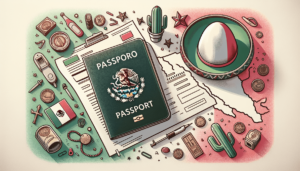Retiring in Costa Rica is a dream for many due to its stunning natural beauty, friendly locals, and affordable cost of living. You’ll find yourself basking in a tropical paradise with a welcoming expat community and a slower pace of life. However, it’s essential to weigh the pros and cons carefully, as the laid-back lifestyle and infrastructure challenges might not suit everyone. In this article, we dive into the delightful benefits and potential drawbacks of making Costa Rica your retirement destination, helping you make an informed decision about this picturesque Central American country. Have you been dreaming about spending your golden years in a tropical paradise? The idea of retiring in Costa Rica might have crossed your mind. It’s a country known for its stunning landscapes, rich biodiversity, and welcoming culture. But like any major life decision, there are numerous factors to consider before making the big move.
In this article, we’re diving deep into the pros and cons of retiring in Costa Rica to help you decide if it’s the right fit for you.
Check out our recommended retirement gifts!
Why Consider Costa Rica for Retirement?
Costa Rica’s allure lies in its beautiful beaches, lush rainforests, and friendly locals, often referred to as “Ticos.” Add to that a stable political climate, high quality of life, and affordable healthcare, and you have a compelling case for settling down in this Central American gem.
Pros of Retiring in Costa Rica
Let’s start with the positive aspects of calling Costa Rica your retirement home.
Climate
If you’re tired of harsh winters, Costa Rica’s climate could be a dream come true. It boasts tropical weather year-round with temperatures generally ranging from 70 to 90 degrees Fahrenheit.
Nature and Scenery
Imagine waking up to serene beaches, towering volcanoes, and verdant rainforests. Costa Rica is home to an impressive range of flora and fauna, making it a haven for nature lovers.
Lower Cost of Living
The cost of living in Costa Rica can be lower compared to the United States or Europe, particularly if you steer clear of tourist-heavy areas. Groceries, public transportation, and healthcare are all more affordable, allowing your retirement savings to stretch further.
Healthcare
Costa Rica boasts a robust healthcare system that is both high-quality and affordable. The country offers two options: a public healthcare system (Caja) and private healthcare. Both provide exceptional medical care without the hefty price tag.
Expat Community
A strong expatriate community exists in Costa Rica, especially in popular areas like San José, Guanacaste, and the Central Valley. This community can provide invaluable support as you make the transition to a new country.
Below is a table summarizing the main pros of retiring in Costa Rica:
| Pros | Description |
|---|---|
| Climate | Ideal tropical weather with temperatures between 70-90°F year-round. |
| Nature and Scenery | Stunning landscapes featuring beaches, rainforests, and volcanoes. |
| Lower Cost of Living | More affordable living expenses compared to the US and Europe. |
| Healthcare | High-quality, affordable medical care offered via public and private systems. |
| Expat Community | Strong support network of fellow expatriates to help you settle in. |
Cons of Retiring in Costa Rica
As appealing as Costa Rica sounds, it’s important to consider the drawbacks as well.
High Humidity
While the tropical climate is a perk, the humidity can be overwhelming for some people. If you’re not accustomed to high humidity levels, it might take some getting used to.
Language Barrier
Despite a growing number of English speakers, Spanish is the official language. Learning Spanish would greatly help you in daily interactions and understanding the local culture.
Inconsistent Infrastructure
In rural areas, you might encounter issues like unreliable internet, frequent power outages, and poorly maintained roads. Urban areas fare better, but the inconsistency can be a drawback.
Bureaucratic Hassles
The process of obtaining residency can be frustrating due to bureaucratic red tape. Be prepared for paperwork, long waiting periods, and frequent visits to government offices.
Cultural Adjustments
Moving to a new country inevitably involves cultural adjustments. Understanding local customs, adjusting to “Tico time” (a more relaxed approach to punctuality), and adapting to the lifestyle can be challenging but rewarding.
Here’s a table of the primary cons you might face:
| Cons | Description |
|---|---|
| High Humidity | Humidity levels can be uncomfortable for those not used to tropical climates. |
| Language Barrier | Knowledge of Spanish is essential for easier communication and integration. |
| Inconsistent Infrastructure | Issues like unreliable internet and poor road conditions in rural areas. |
| Bureaucratic Hassles | Complicated residency procedure with lots of paperwork and long waits. |
| Cultural Adjustments | Adapting to new customs and lifestyle changes can be challenging. |
Financial Considerations
Pensionado Program
Costa Rica offers a Pensionado Program designed specifically for retirees. To qualify, you need to demonstrate a stable income of at least $1,000 per month from a pension source. This program provides a path to residency and comes with various benefits.
Property Investment
Buying property in Costa Rica can be an appealing option due to relatively lower costs and beautiful locales. However, it’s essential to understand the legalities and consult a reliable real estate agent to navigate the process smoothly.
Cost of Essentials
Here is a breakdown of average monthly costs for a couple living comfortably in Costa Rica:
| Expense | Average Cost (USD) |
|---|---|
| Rent (2-bedroom apartment) | $700 – $1,200 |
| Groceries | $300 – $500 |
| Utilities (electricity, water, internet) | $100 – $150 |
| Healthcare | $50 – $100 (public), $100+ (private insurance) |
| Transportation | $50 – $100 |
| Entertainment | $150 – $250 |
Banking and Taxes
Opening a bank account in Costa Rica is relatively straightforward, but it requires patience and some documentation. U.S. citizens also need to be mindful of their tax obligations back home, as they still need to file with the IRS.

Check out our recommended retirement gifts!
Healthcare Benefits
Public Healthcare (Caja)
The public healthcare system, known as Caja, is available to residents and offers comprehensive medical services at low costs. However, wait times can be long, and not all facilities are up to modern standards.
Private Healthcare
Private healthcare is available and preferred by many expatriates due to shorter wait times and more comfortable facilities. Costa Rica’s private hospitals and clinics are top-notch and significantly cheaper than in the United States.
Medical Tourism
Costa Rica is a hotspot for medical tourism, offering affordable procedures such as dental work, cosmetic surgery, and orthopedic treatments. This is an added benefit if you have specific health care needs.
Lifestyle and Activities
Outdoor Activities
The country is a haven for outdoor enthusiasts. Whether it’s surfing, hiking, or bird watching, there are plenty of activities to keep you engaged and active.
Cultural Scene
Costa Rica boasts a vibrant cultural scene with numerous festivals, local music, and dance. Getting involved in community events is a great way to immerse yourself and meet new people.
Volunteering
There are ample opportunities for volunteering, whether it’s working with local schools, conservation projects, or community programs. It’s a fulfilling way to give back and become part of the local community.

Safety and Security
Crime Rate
Costa Rica generally has a lower crime rate than many Latin American countries, but it’s not crime-free. Petty theft and home burglaries can occur, particularly in urban areas and tourist spots. Staying vigilant and taking standard precautions can help keep you safe.
Political Stability
Costa Rica is known for its stable democracies and absence of a military, investing instead in education and healthcare. This stability adds to its appeal as a retirement destination.
Natural Disasters
Being in a tropical climate, Costa Rica is susceptible to natural events like earthquakes, hurricanes, and flooding. Understanding evacuation routes and having an emergency plan in place is advisable.
Social Integration
Learning Spanish
Learning the local language is essential for a smooth transition. Many locals appreciate your effort to speak Spanish, and it helps you navigate daily tasks more efficiently.
Making Local Friends
While the expat community is a great support system, engaging with locals enriches your experience and helps you understand the culture better. Join local clubs, take part in community activities, and be open to forming new friendships.
Adapting to “Tico Time”
Costa Ricans have a more relaxed attitude toward time, often referred to as “Tico Time.” Punctuality is more flexible, and it might take some time to adjust to this laid-back pace.
Final Thoughts: Is Costa Rica Right for You?
Retiring in Costa Rica offers numerous pros, from a lower cost of living and stunning natural beauty to high-quality healthcare and a welcoming expatriate community. However, it’s not without its challenges, including high humidity, potential language barriers, and bureaucratic red tape.
Ultimately, whether Costa Rica is the right place for your retirement hinges on personal preferences and how well you’re prepared to adapt to a new environment. Weigh the pros and cons carefully, perhaps spend a few extended vacations in the country, and conduct thorough research before making your decision.
So, are you ready to turn your retirement dream into a reality in Costa Rica? The Pura Vida lifestyle awaits!



